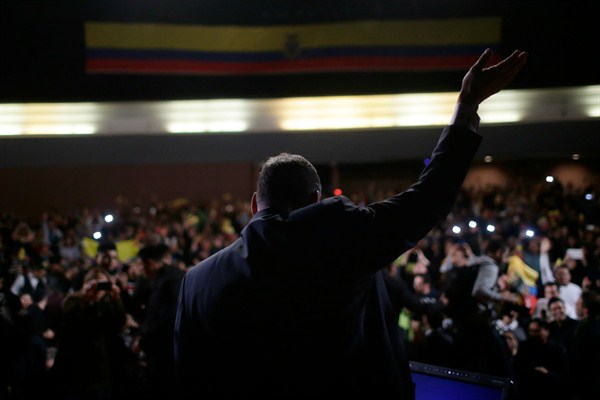On Feb. 19, Ecuador will hold elections for a new president and members of the 137-seat National Assembly, as well as for the Andean Parliament, the legislative body of the Andean Community customs union made up of Bolivia, Colombia, Ecuador and Peru. Ecuadorians will also vote on a proposal to prohibit public officials from having assets in tax havens.
With leftist President Rafael Correa ineligible to run for re-election as he finishes an unprecedented third term, many predict the elections will be a referendum on his so-called Citizen’s Revolution. Poverty in Ecuador has decreased 16 percent under Correa, thanks to a dramatic increase in social spending. Education, health and infrastructure have all improved. For several years, Correa held one of the highest presidential approval ratings in the Americas. But the economy has become more reliant on oil exports, while declining oil prices have resulted in slowed growth. With 40 percent of the country’s export earnings derived from oil, the incoming administration will be faced with the possibility of dismantling some of Correa’s populist programs.
Despite his declining popularity and brash personality, Correa has brought stability to Ecuadorian politics. Not since Sixto Duran Ballen left office in 1996 has an Ecuadorian president completed a full term. First elected in 2006, Correa was re-elected in 2009 after a Constituent Assembly drafted a new constitution in 2008 that gave the president additional powers and allowed two consecutive four-year terms, though the limits on presidential re-election were later eliminated in 2015. He was easily re-elected in 2013; a divided opposition was no match for his almost 90 percent approval rating. It remains to be seen how his long shadow will affect his Alianza PAIS party’s chance of victory later this month.

